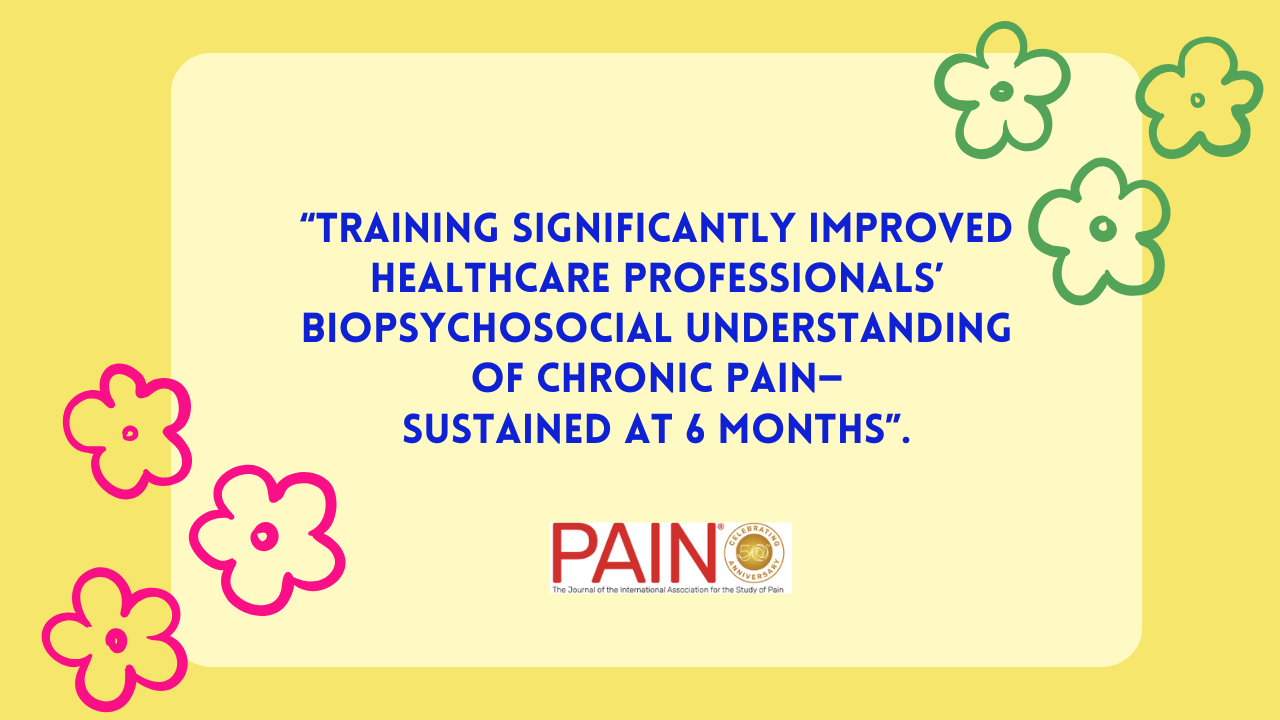What Happens When Healthcare Pros Learn Pain Science? Spoiler: A Lot.
Apr 16, 2025
What Happens When Healthcare Pros Learn Pain Science? Spoiler: A Lot.
I recently read a powerful new study in the March 2025 issue of PAIN that was right up my Brooklyn alley. It explored what happens when healthcare professionals (HCPs) are trained to understand and treat chronic pain through a biopsychosocial lens—rather than sticking to the traditional biomedical model. The results? Encouraging, to say the least.
The study followed an interdisciplinary training program in Belgium where doctors, PTs, nurses, psychologists, pharmacists, and more came together to rethink their approach to chronic pain. The program included two e-learning modules and two full-day workshops in small, collaborative groups. Not just lectures—real engagement, real practice.
They learned:
• How pain is processed in the nervous system (spoiler: it’s not just about tissue damage)
• How beliefs, fear, and stress amplify pain—and how to address those factors in care
• How to guide patients in a way that supports healing instead of fear
• And how to work across disciplines to treat the whole person
Here’s the kicker: the results weren’t just a post-workshop glow. Six months later, those same providers were still applying what they’d learned. Their knowledge held strong, and their patient guidance aligned more closely with modern pain science. This is the kind of shift that doesn’t just change clinics—it changes lives.
At PelvicSense, we’ve built our entire program around this approach—giving people with pelvic pain the tools to learn and practice at home, alongside their medical care. Chronic pelvic pain is complex. It requires treatment that integrates both mind and body, acknowledges emotional and psychological factors, and empowers those suffering to take an active role in their healing—something that hasn’t always been encouraged in the past. This study validates the path we’ve been on and only deepens our commitment to it.
Right now, as funding for women’s health research is being slashed here in the U.S., this kind of interdisciplinary, evidence-backed care is more urgent than ever. That’s why we’re launching our pilot program and preparing for a 3-year randomized control trial. We're stepping in where American public support is falling short—because women deserve better.
Want to see how this approach looks in action or learn about our Pilot program for Practitioners treating underserved pelvic pain patients? Let’s talk.
Link to article: https://journals.lww.com/pain/fulltext/2025/03000/enhancing_healthcare_professionals_.18.aspx?utm_source

